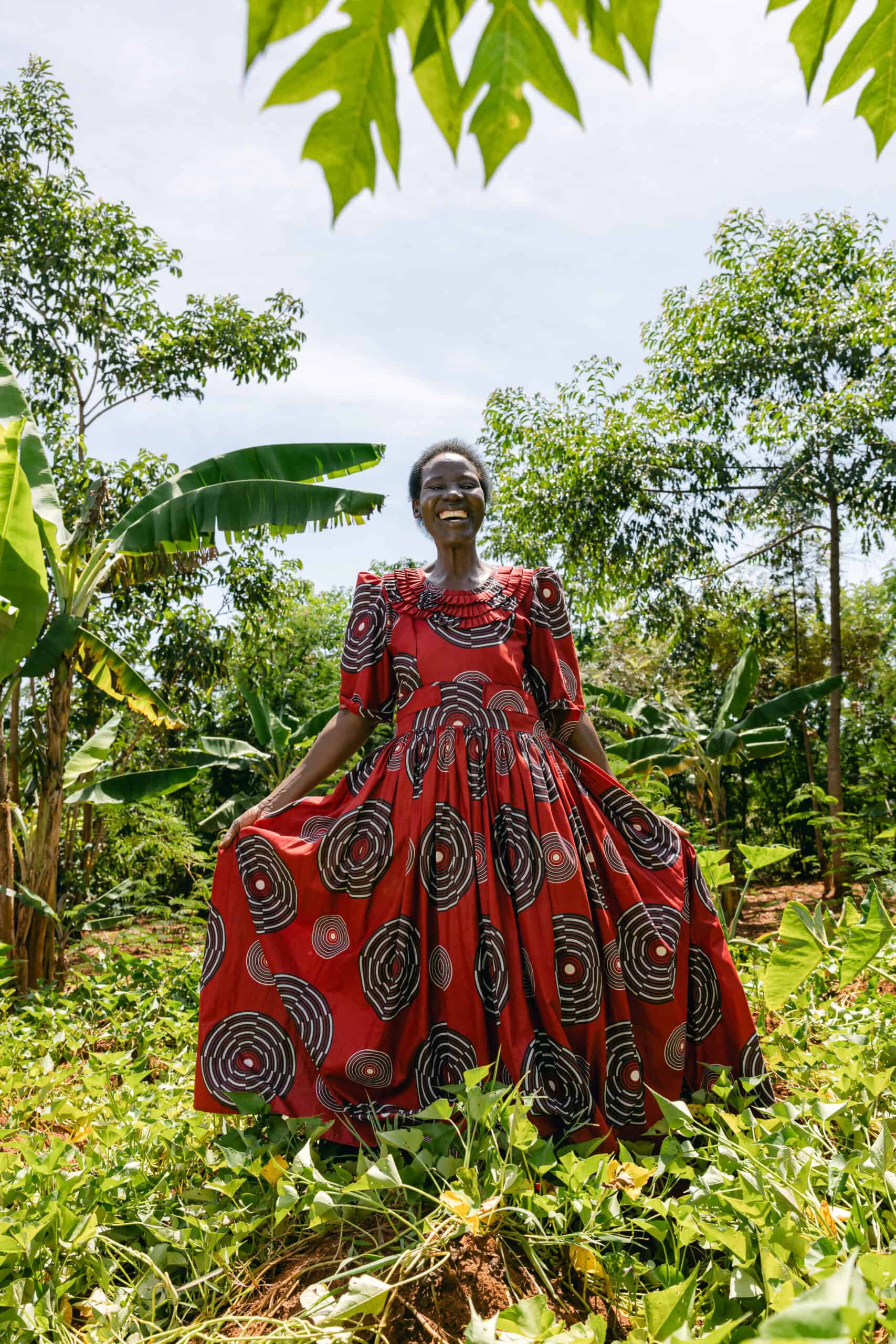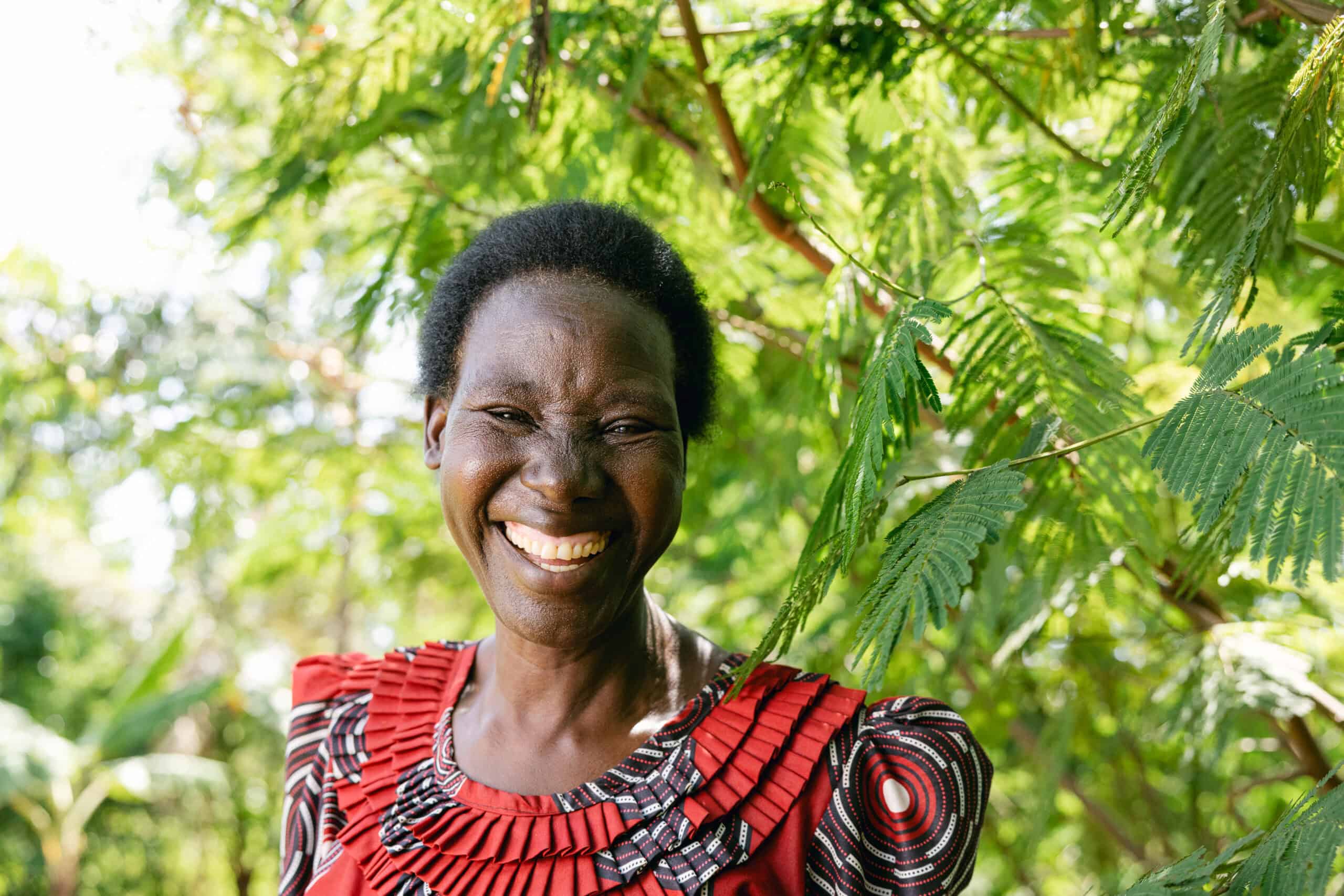In Busia, Uganda, farmers typically grow one of three common crops: coffee, bananas, or sugar. The climate is well suited for these globally consumed cash crops. But after generations of clearing the mountainous farmlands of tree cover to grow the same crop over and over again, farmers in the region are paying the price.
Increasingly heavy rainfall is washing the degraded soil from the hillsides and leaving farmers with less food, income, and opportunity.
The Standard Farming Approach Wasn’t Working
When Auma Justine joined Trees for the Future’s (TREES) Forest Garden Training Program in 2020, she was following the typical approach to farming. She grew and relied on just two crops to provide for her family all year long. And it wasn’t enough.
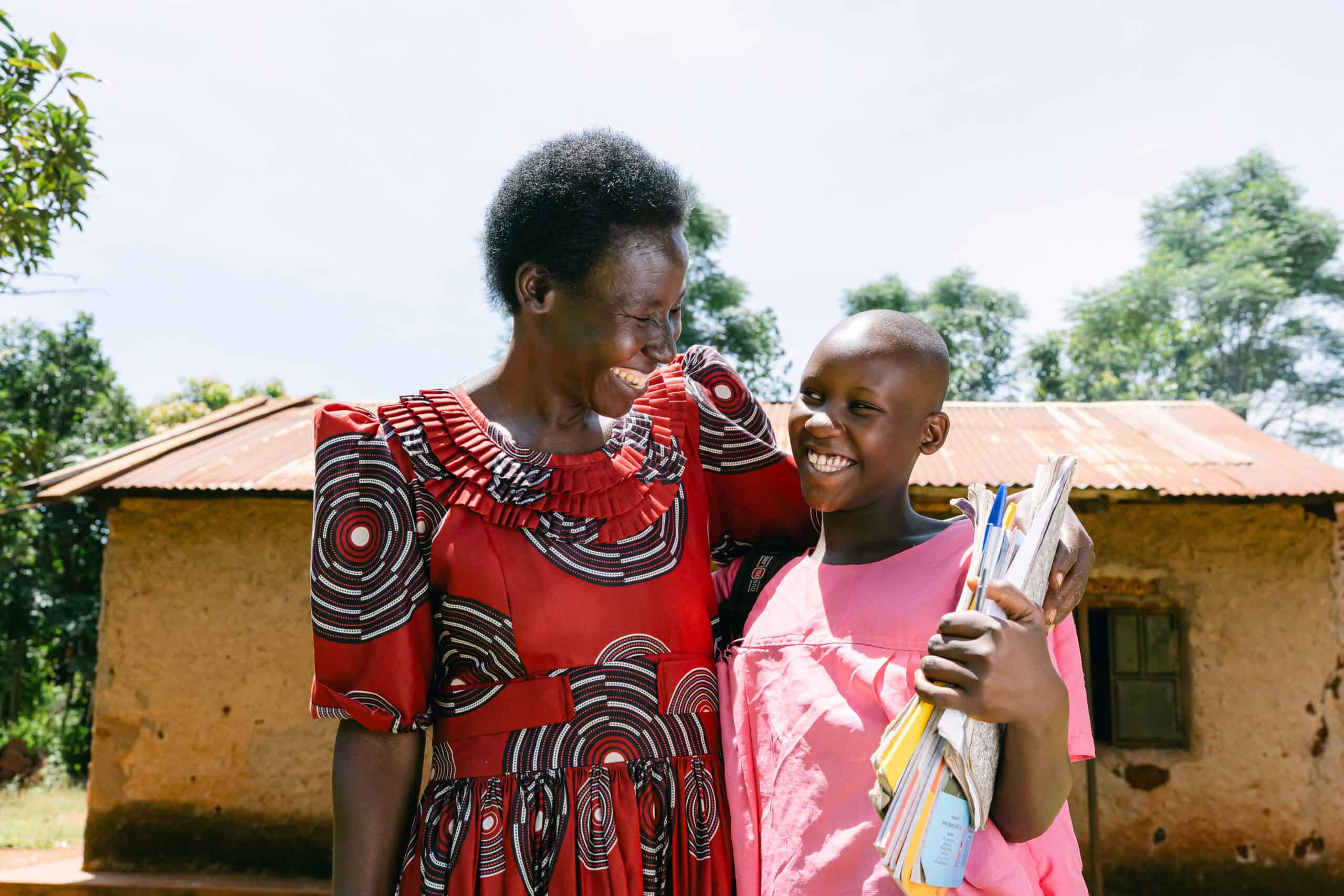
Farmers like Justine report not having enough to eat or the parents often skip meals to ensure their children can eat. But the Forest Garden changes that.
Justine Needed to Make a Change
With training and support from local TREES staff, Justine and her neighbors learned how to establish and maintain Forest Gardens on their own land. These agroforestry systems restore degraded land and protect it for the farmer and future generations. Along with the thousands of trees growing in a Forest Garden, farmers plant dozens of species of fruits and vegetables to provide food and income every month of the year.
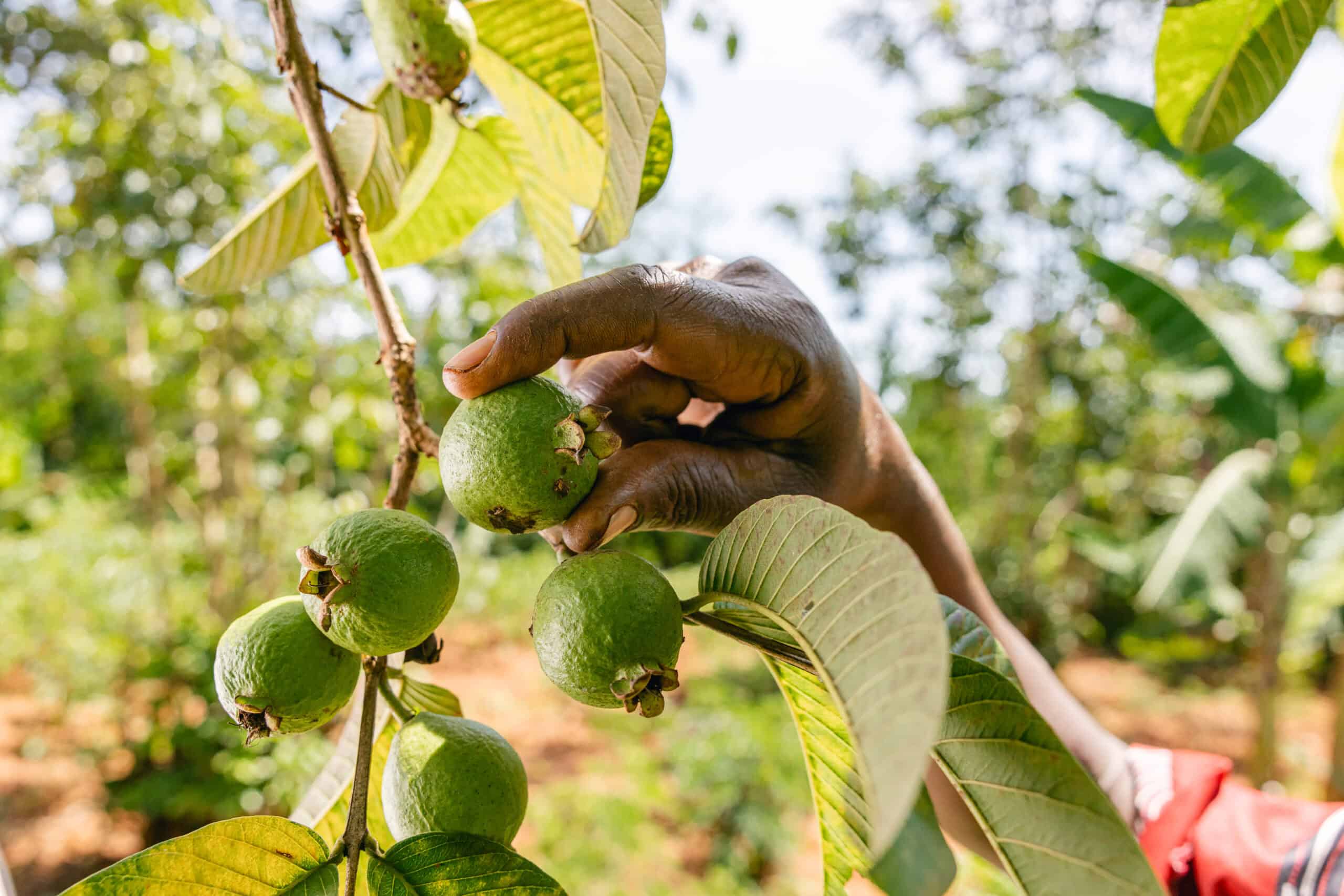
Finding Success and a New Perspective
“Before I used to think feeding on a balanced diet was for rich people only,” she says, “but now, I can assure you that it’s for knowledgeable farmers.”
Today, Justine has nearly 4,000 trees growing in her Forest Garden and over a dozen plant species. At any given time, she has seven food crops and 38 marketable products she can rely on. In addition to the food her Forest Garden puts on the table, she earns about 120,000 shillings ($33 USD) a week. She’s been able to buy two goats with her increased income and feeds them from the Forest Garden too.
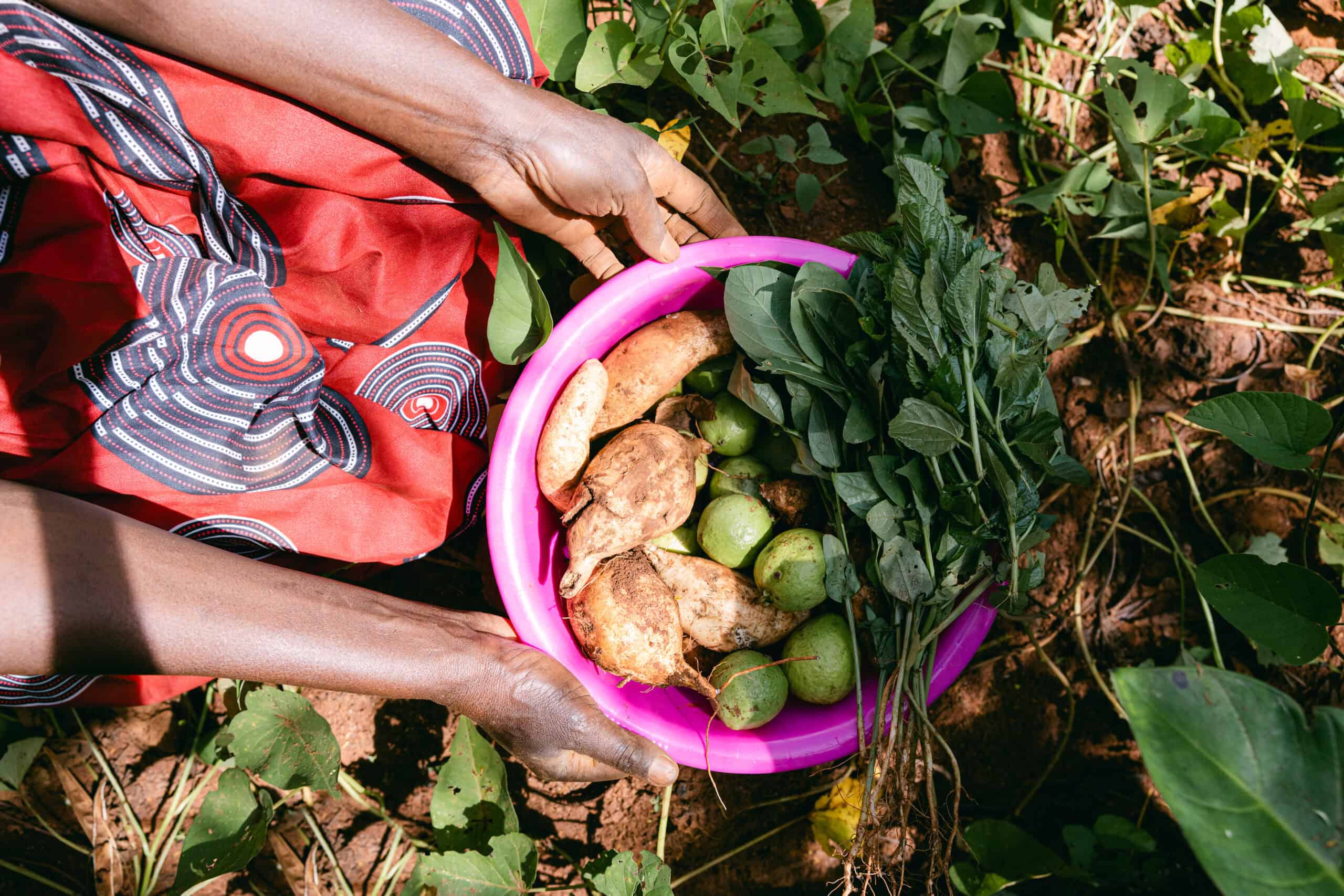
A Happy, Healthy Family
With a healthy diet, she says her kids are happy, healthy, and thriving. Forest Gardens don’t just repair and protect the land. They let kids like 12-year-old Adieri Eunice focus on the important things like school and being a kid!
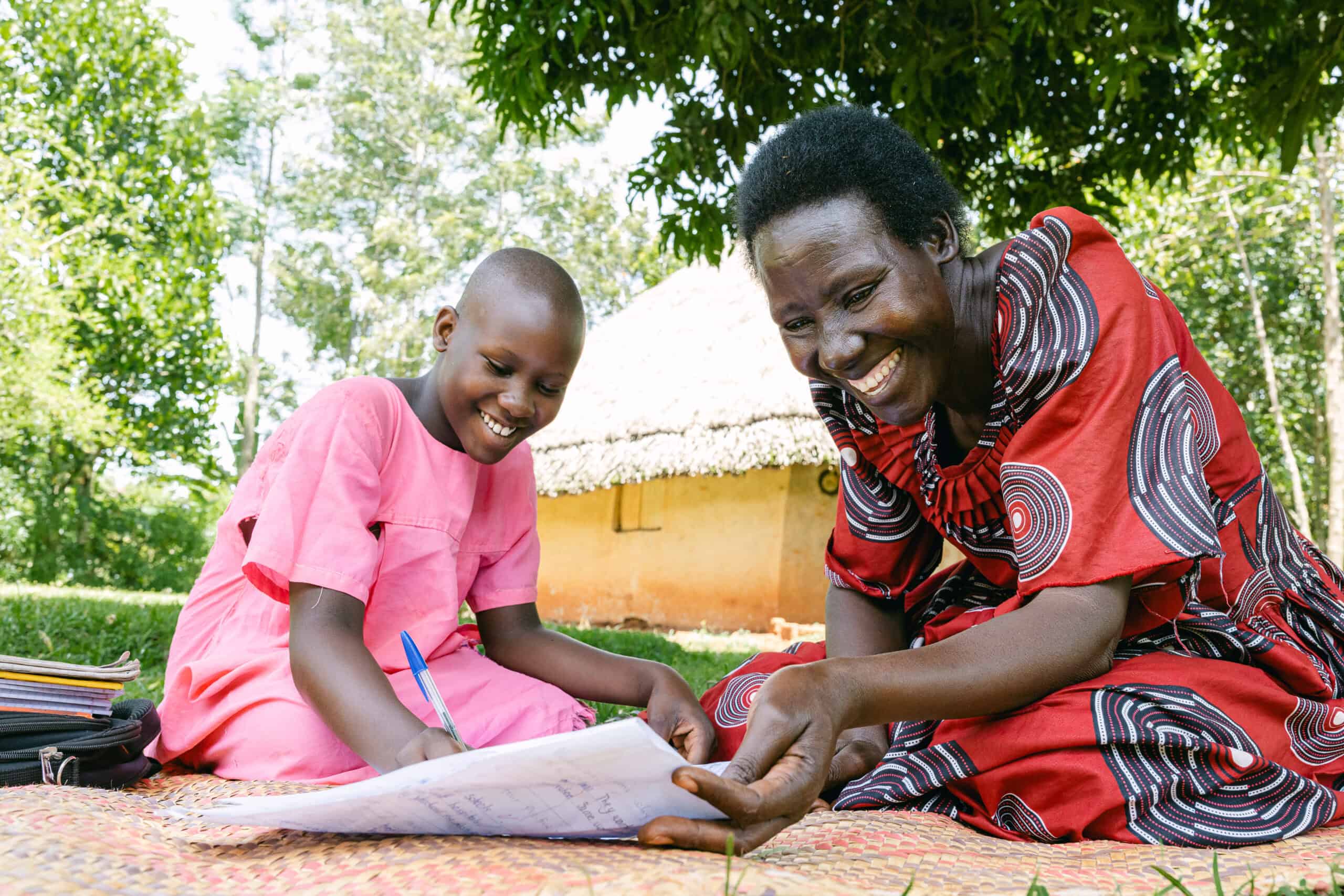
Join Us
Help TREES staff reach more farmers like Justine and kids like Eunice. Donate today.
